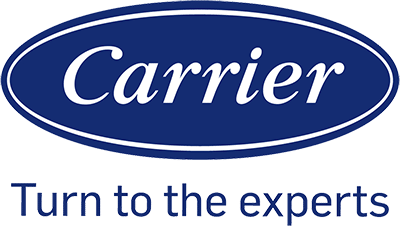Understanding Your HVAC System

Before we work on extending the life of our HVAC system, it’s crucial to grasp its components and functions. An HVAC system is more than just heating and cooling; it encompasses everything related to Heating, Ventilation, and Air Conditioning. Learning about the various parts can help us ensure they’re running efficiently and receiving proper maintenance.
Key Components of an HVAC System:
- Thermostat: Serves as the control center, allowing us to set our desired temperature.
- Furnace: The powerhouse of heating, often fueled by gas, electric, or oil.
- Heat Exchanger: Found within the furnace, it heats the air distributed through our home.
- Air Conditioner: Works to cool indoor air, typically located outside the house.
- Ductwork: A network of tubes that transports air throughout our property.
- Vents: Openings that convey either warm or cool air into rooms.
- Evaporator Coil: Cools the air as it passes through, situated near the furnace.
By understanding these components, we take the first step towards enhancing our system’s longevity. Regular checkups of our AC system—cleaning or replacing filters, inspecting ducts, and ensuring the outdoor unit remains clear of debris—can prevent common issues. Similarly, our heating system, from the furnace to the heat exchanger, needs periodic inspections to check for cleanliness and structural integrity. These small acts of maintenance can have a large impact on the durability and efficiency of our air conditioning system and heating appliance alike.
In summary, acknowledging the integral parts and their functions within our HVAC system is a foundational step to maintain its health and extend its lifespan.
Routine Care and Regular Maintenance

To ensure that your HVAC system operates efficiently for years, adherence to routine care and regular maintenance is critical. By focusing on filter management, ductwork inspection, and thermostat settings, we can prevent the majority of common issues that lead to HVAC system degradation.
Filter Management
It’s imperative that we frequently check and replace the HVAC filters. Proper filter management consists of:
- Regular Checks: Monthly inspections of our filters for clogs or damage.
- Timely Replacement: Following the manufacturer’s recommendation, usually every 30 to 90 days, we replace filters to maintain air quality and system efficiency.
Ductwork Inspection
The ductwork is the circulatory system of our HVAC unit. Scheduling regular ductwork inspections ensures:
- Seal Integrity: Checking for and sealing any leaks preventing energy waste.
- Cleanliness: Hiring a maintenance service for duct cleaning to eliminate debris that impedes airflow.
Thermostat Management
Smart thermostat management significantly contributes to the longevity of our HVAC system. We focus on:
- Correct Settings: Adjusting settings for optimal energy use while maintaining comfort.
- Upgrades: Considering the installation of a programmable thermostat for better control and efficiency.
Professional Inspections and Servicing

Regular engagement with HVAC professionals for maintenance service is crucial for extending the lifespan of HVAC systems. These specialized services go beyond basic upkeep, ensuring a thorough examination of the system’s integrity and performance.
Engaging HVAC Professionals
We recommend scheduling routine maintenance services with qualified HVAC professionals at least once a year. Our team of professional HVAC technicians conducts comprehensive visual inspections and system efficiency tests to catch any potential issues before they escalate. Preventive maintenance can include tasks like:
- Replacing air filters
- Cleaning ducts and vents
- Calibrating the thermostat
- Inspecting the condensate drain
- Lubricating moving parts
These actions help maintain optimal functioning and can prevent costly repairs down the line.
Leak and Electrical Assessments
During professional inspections, attention to leaks and electrical connections is imperative.
- Leak assessments: We ensure that all refrigerant levels are checked and that there are no leaks in the system, as these can significantly hinder performance.
- Electrical inspections: Our technicians tighten all electrical connections and measure voltage and current on motors. Faulty electrical connections can cause unsafe operation of your HVAC and reduce the life of major components.
By addressing these specific areas, our service provides peace of mind that your HVAC system is running as efficiently and safely as possible.
Enhancing Efficiency and Air Quality
Proper maintenance and smart practices can significantly boost your HVAC system’s efficiency and the air quality in your space.
Air Flow Optimization
To ensure efficiency, it’s critical to maintain proper airflow. Clogged and dirty air filters are a common hindrance, as they force HVAC systems to work harder, raising energy costs and reducing energy efficiency. Replacing or cleaning air filters every 30 to 90 days can result in considerable energy savings.
- Check air filters monthly.
- Schedule regular maintenance to ensure components are functioning optimally.
Efficient airflow not only reduces stress on the system but plays a vital role in maintaining indoor air quality. Proper airflow helps minimize the presence of dust, dander, and other pollutants, which can accumulate within the network of ducts and significantly compromise air quality.
Environmental Considerations
Your HVAC’s environment impacts its efficiency and the air you breathe. High levels of humidity can foster the growth of mold, bacteria, and result in bad odors. Employing dehumidifiers and ensuring your space is well-insulated can greatly enhance air quality.
- Dehumidifiers: Utilize in humid areas to prevent mold and bacteria growth.
- Insulation: Properly insulate to help maintain a consistent indoor temperature and reduce the strain on your HVAC system.
Moreover, the placement of furniture and decor can affect airflow and the system’s ability to circulate clean air. Strategic positioning ensures vents are unobstructed, promoting improved air distribution and energy efficiency.
Air quality is not merely a matter of comfort but of health. Investing now in optimization and environmental controls can lead to long-term benefits, both financially through reduced energy costs and health-wise by creating a cleaner breathing environment.
System Longevity and Avoiding Common Issues
Ensuring the longevity of your HVAC system is crucial for maintaining a comfortable climate in your home and avoiding costly repairs. Regular maintenance is the foundation of keeping your system running smoothly.
- Check Refrigerant Levels: Proper refrigerant levels are vital for efficient operation. Low levels may indicate a leak and can lead to decreased system lifespan.
- Routine Inspections: Scheduling professional inspections can detect potential issues before they escalate, saving you money and ensuring peace of mind.
| Task Frequency | Action Item |
|---|---|
| Monthly | Replace or clean air filters. |
| Bi-annually | Professional system inspection. |
| Annually | Check ductwork for leakage. |
Care for your system by listening for unusual noises—a sign of potential problems. A quiet system is a happy one. Investing in a quality cover for your outdoor unit can protect it from the elements and extend its lifespan.
We always emphasize climate-appropriate care for your HVAC system, as different environments demand specific maintenance strategies. For instance, humid regions might require more frequent checks for mold growth, while colder areas might focus on inspecting the heat exchange components.
By following these best practices, your HVAC system can operate efficiently for years to come, providing you with the optimal balance between comfort and cost-effectiveness.
Frequently Asked Questions
As we guide you through the realm of HVAC longevity, we address the most pressing questions with factual precision. Our expertise ensures your system runs efficiently and sustains its maximum lifespan.
How can regular maintenance impact the longevity of an HVAC system?
Regular maintenance is pivotal for the longevity of an HVAC system. It allows us to detect issues early, ensure efficient operation, and prevent unexpected breakdowns which can lead to costly repairs or replacements.
What are the best practices for ensuring optimal efficiency in older HVAC units?
For older HVAC units, ensure optimal efficiency by routinely replacing air filters, scheduling annual professional tune-ups, and sealing any ductwork leaks. This mitigates unnecessary strain and maintains system effectiveness.
At what point should an HVAC system be replaced rather than repaired?
An HVAC system likely needs replacement if it is over 15 years old, requires frequent and costly repairs, shows a consistent decline in performance, or uses an outdated refrigerant like R-22, which is less efficient and being phased out.
How do proper installation and sizing affect an HVAC unit’s lifespan?
Proper installation and correct sizing are crucial for an HVAC unit’s lifespan. An oversized or undersized unit works harder to regulate temperature, increasing wear and resulting in a shorter operational life.
What strategies can homeowners use to reduce the wear and tear on their HVAC systems?
To reduce wear and tear, homeowners should maintain a clean environment around both indoor and outdoor HVAC units, use programmable thermostats wisely, and ensure good insulation to alleviate system workload.
Are there specific components of an HVAC system that require more frequent attention to extend its overall life?
Yes, the air filter, coils, and fins require more frequent attention to prevent airflow obstruction and maintain efficiency. Keeping these components clean and promptly repairing any issues can significantly extend the system’s overall life.




